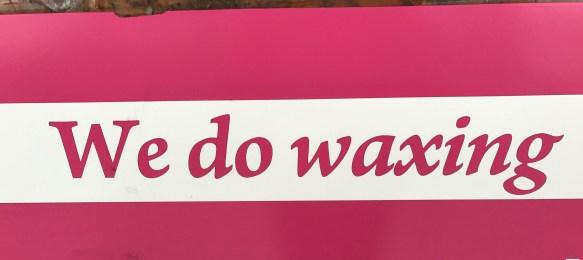No, the title is not a typo. The US Census reports that the average American family has .9 children. When you remove childless families from the calculation, the average number jumps to 1.86. I know at least some math, so I’m not questioning the silliness of .9 or 1.86 kids. Statistics and real life don’t always mesh well, though I do wonder what a .9 kid would look like.
I am questioning absurd signs, such as this poster advertising acting classes:

“Classes for 0 – 18 years.” How, exactly, do you teach a zero-year-old? Have the mother give birth on stage? I thought I was in favor of arts education for all, but now I realize that I’m in favor of arts classes for most. I draw the line a teensy bit higher than zero years.
Another interpretation of this sign revolves around how long the classes run. If you’ve been in class for 18 years, I assume you have an Oscar, Emmy, Tony, and every other performing arts trophy. I also hope that somewhere during those 18 years, you had a coffee break and a restroom excursion or two. The question arises: Who would sign up for a class that meets for O years? Probably someone who wants to say “I studied acting” but doesn’t want to go to class. In my teaching career, I met a fair number of kids in that category.
The next population statement is from a clothing store:

One wonders if this is a sociological statement. One also wonders why the adults are singular (“Man,” even though there are 2, and “Woman”). For the sake of parallelism, the English-teacher term for balance and uniformity in a list, shouldn’t it be “Kid”?
Same store, different aisle:

The parallelism problem is still present, but the numbers make more sense. If the average family has .9 children, the “-1” could work, unless you’re addressing the average number of children in families that actually have them (the most likely buyers of kids’ clothing), in which case the sign-writers should reference the 1.86 average and maybe go with “1+” or “I-ish.”
I’m not going to analyze the “2 Man, 1 Woman” issue presented in both signs. Seriously, I’m not even going to mention it. But I will show you this sign:

Aside from parallelism — you shop for gear for “kids” (plural) and “baby” (singular) — it’s a relief to know that the kids and baby are inside, not in the middle of Third Avenue’s perpetual traffic jam.
I’m off to look at photos of my two (a whole and completely logical number, I must point out) granddaughters. Have fun with your .9 (or 1.86 or however many) kids. Or just enjoy this autumn day.




























